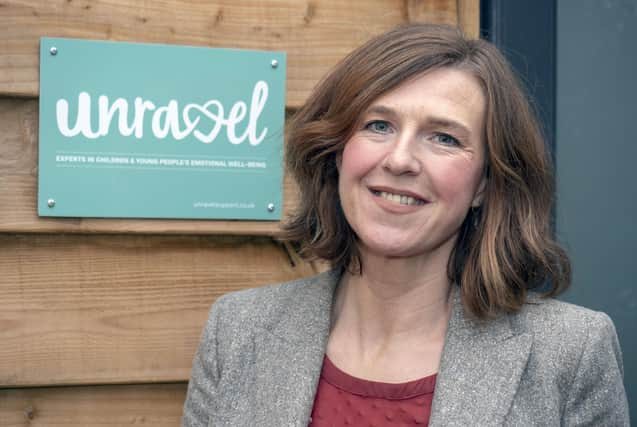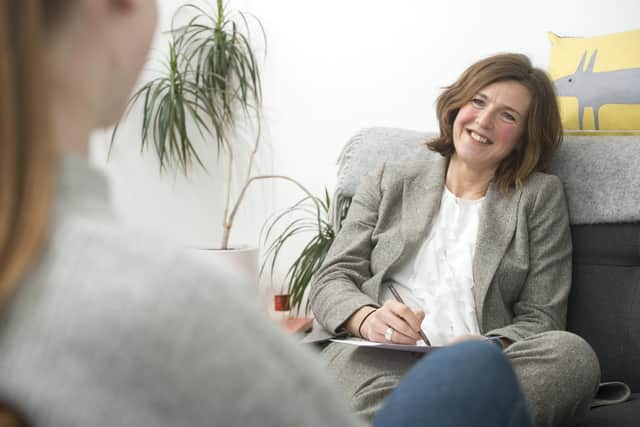The psychology of self-isolation and what we can do protect our well-being at this time


This is unprecedented in every way which is why we are activating higher levels of unease due to the uncertainty of what lies ahead, with increased levels of sadness, anxiety, anger and for some real fear.
On top of the crisis we are all facing, we are now being asked to isolate ourselves from the things and people that we love and would, most definitely help us during this difficult time.
Advertisement
Hide AdAdvertisement
Hide AdThis could undoubtedly affect our well-being. Our freedom will feel compromised.


The independence that we take for granted being taken away. A dependency on others to look after and be there for us when we feel vulnerable is becoming necessary.
We have lost routine, structure, choice and that too brings a feeling of helplessness and loss. So, it is perfectly normal and natural to be experiencing what we are feeling, our brains are doing what is right not what is wrong.
Nevertheless, we must make sure that we don’t let our emotions get to carried away and pal up with our imagination as this will lead to greater
Advertisement
Hide AdAdvertisement
Hide Adcatastrophising of the situation which is not going to help us at all.


We must remember to focus on what we are doing now and not race to far into the future. The one thing we can all be certain of is that what lies
ahead has elements of uncertainty but it will all change, situations and emotions always do.
So, what can we do to help us to buffer further emotional distress whilst
in self-isolation:
Advertisement
Hide AdAdvertisement
Hide Ad

Accept what is happening. This is out of all our control so we
either; fight it and hold onto all our negative feelings, stay
miserable or accept the reality and put our emotional energy into
doing things that will make us feel happier and better at this time.
Advertisement
Hide AdAdvertisement
Hide Ad Remember all our emotions are telling the truth but the degree of
which we are feeling them can sometimes be in excess. If you are
feeling overwhelmed, anxious, scared or sad label the emotion.
Naming our emotions correctly, helps reduce their intensity
To reduce heightened levels of anxiety, take some time out to
Advertisement
Hide AdAdvertisement
Hide Adbreathe slowly in for the count of 4, hold your breathe for the count
of 7 and then slowly breathe out for the count of 8. This floods the
brain with oxygen, to induce a sense of calm and lowers the heart
rate. Repeat for as many times as is necessary
Use the time to get busy. This will help our days feel like they have
Advertisement
Hide AdAdvertisement
Hide Ada purpose and will also help the day go quickly. Do the jobs that
have been on your mind’s list for a long time, but you never get
round too. Sort cupboards, organise photographs, start an online
course
Incorporate exercise into your day. If you lay on the sofa all day,
Advertisement
Hide AdAdvertisement
Hide Adevery day, your brain will think you are ill and will shut down
positive chemical production. Boost those feel good chemicals with
movement, and pleasurable activities
Ride the wave of boredom. In the busy, overdemanding lives we
all lead, boredom is often an emotion that many people yearn but
Advertisement
Hide AdAdvertisement
Hide Adrarely experience. Feeling bored is important for positive mental
health and well-being as it gives rise to doing the things that we
want to do rather than what we must do and awakens our creativity
and playfulness
Use the time to reset your internal speedometer. This may well
Advertisement
Hide AdAdvertisement
Hide Adtake some adjusting. We may miss the adrenalin that we are used
to functioning on but slowing down could do us all more good than
we realise and hopefully change things for a longer term good
Stay connected with family and friends. Knowing we have people
Advertisement
Hide AdAdvertisement
Hide Adthere for us and we are there for other people gives us a good
sense of well-being. Also why not use this time to contact the
people you haven’t spoke to for too long
We are in this together. Often out of difficult experiences comes a
strength, a sense of belonging and wisdom that can add a richness
Advertisement
Hide AdAdvertisement
Hide Adto our lives. This learning curve is huge for us all and it will support
our resilience in the other situations we will undoubtedly
experience across our lifetime
By Andrea ChattenFounder and Lead Children's Emotional & Behavioural Psychologist at Sheffield’s Unravel and author of The Blinks novels supporting children's well-being
unravelsupport.co.uk